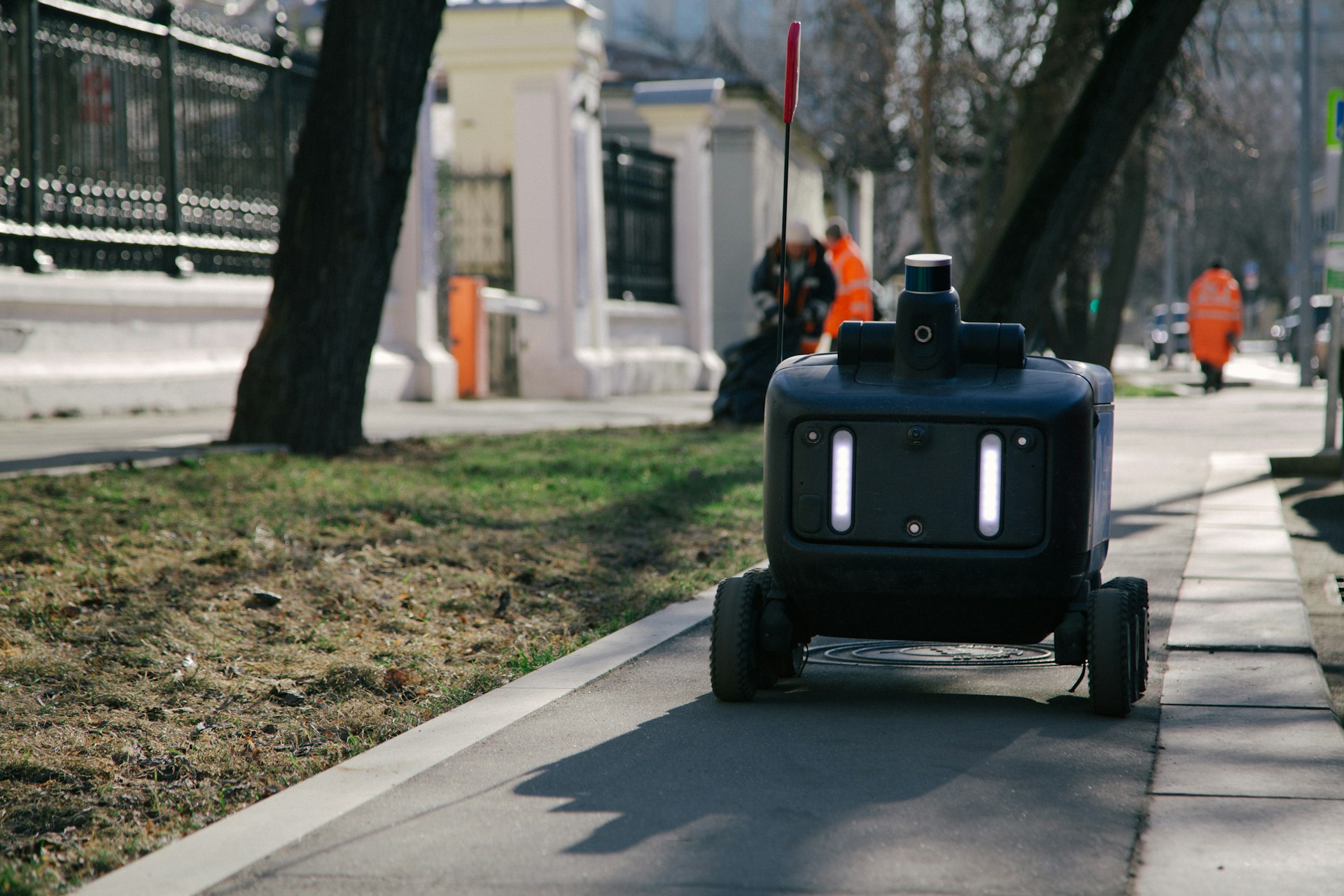Navigating the Future of Decentralized Autonomous Organizations: Trends, Opportunities, and Real-World Implementation

Photo by GuerrillaBuzz on Unsplash
Introduction: The Rise of Decentralized Autonomous Organizations
Decentralized Autonomous Organizations (DAOs) have emerged as one of the most significant innovations in the digital economy. Powered by blockchain technology and smart contracts, DAOs offer a new paradigm for organizational governance-one that is transparent, democratic, and resilient. In 2025, over 13,000 active DAOs are reshaping communities, industries, and even global supply chains, driving a compound annual growth rate of approximately 30% since 2021 [1] . This article examines the future trajectory of DAOs, explores the practical steps for getting involved, and discusses regulatory and operational challenges to keep in mind.
How DAOs Work: Core Principles and Technologies
At their foundation, DAOs are digital organizations governed by smart contracts and blockchain-based voting systems. Unlike traditional companies, DAOs operate without centralized management; instead, governance is collective, facilitated by members holding “governance tokens” that grant voting rights. All decisions-including rule amendments, fund allocations, and project management-are executed via smart contracts and recorded immutably on the blockchain, ensuring both transparency and security [2] .
To participate in a DAO, individuals typically acquire governance tokens, join the DAO community (often via online forums or blockchain platforms), and contribute by voting on proposals or suggesting new initiatives. The automated nature of smart contracts eliminates intermediaries, streamlining operations and reducing costs.
Key Benefits of DAOs: Transparency, Efficiency, and Inclusion
DAOs offer several distinct advantages:
Transparency : All transactions and decisions are visible on public blockchains, reducing the risk of fraud and corruption.
Efficiency : Automated smart contracts enforce rules instantly, minimizing delays and administrative overhead.
Inclusion : Anyone with access to the internet and governance tokens can participate in decision-making, democratizing organizational control [5] .
For businesses, communities, and projects, these benefits translate into fairer resource management, lower operational costs, and greater member engagement.
2025 Trends: AI Integration, User Accessibility, and Industry Expansion
The evolution of DAOs in 2025 is shaped by several notable trends:
- AI-Powered Governance : The integration of artificial intelligence with smart contracts is enabling automated proposal assessments, risk analysis, and more efficient decision-making. This unlocks decentralized machine learning and AI-powered assistants, making DAOs smarter and more adaptive [3] .
- Enhanced User Experience : DAOs are investing in more intuitive interfaces and onboarding processes, lowering barriers to entry for mainstream users. Tutorials, community support channels, and multilingual resources are common.
- Eco-Friendly Solutions : Many DAOs are adopting energy-efficient blockchain protocols, responding to environmental concerns associated with traditional proof-of-work models.
- Sector Diversification : DAOs are now active in finance, gaming, healthcare, social media, and philanthropy. For example, supply chain DAOs optimize logistics, while Web3 social networks enable users to vote on platform policies [4] .
These trends illustrate the rapid maturation of DAOs, making them accessible to a broader audience and more relevant to real-world needs.
Legal and Regulatory Landscape: Challenges and Opportunities
The legal status of DAOs remains a key issue for founders and participants. In 2025, jurisdictions such as Wyoming (USA) have formally recognized DAOs as legal entities, offering a stable foundation for growth and compliance. However, many countries still grapple with questions of liability, taxation, and jurisdiction. For instance, if a DAO incurs debt or causes legal harm, determining responsibility is complex and often unclear.

Photo by Samuel Regan-Asante on Unsplash
Some nations, including Switzerland and Singapore, are actively developing transparent legal frameworks. The European Union is considering how DAOs fit within its Markets in Crypto-Assets (MiCA) regulation to enhance investor protection and clarify compliance obligations [5] . Until global standards emerge, DAO participants should consult local legal experts and closely follow regulatory updates.
Getting Involved: Step-by-Step Guidance for Joining and Building DAOs
If you are interested in participating in or launching a DAO, consider the following steps:
- Research Existing DAOs : Begin by exploring active DAOs in your area of interest (e.g., DeFi, gaming, social impact). Use established blockchain forums, DAO directories, and official community channels to verify legitimacy.
- Acquire Governance Tokens : Most DAOs require members to hold governance tokens. These can often be purchased through reputable cryptocurrency exchanges or earned by contributing to the DAO’s mission.
- Join the DAO Platform : Sign up via the DAO’s official website or blockchain-based portal. Ensure the platform is secure and recognized within the community.
- Participate in Governance : Attend virtual meetings, vote on proposals, and share ideas. Many DAOs use platforms such as Discord, Telegram, or specialized governance tools. Always confirm the authenticity of these channels.
- Stay Informed on Legal and Security Issues : Regularly review updates from regulatory bodies in your region. If in doubt, consult legal advisors specializing in blockchain and digital assets.
For those seeking to start a DAO, consider partnering with experienced blockchain developers and legal professionals to design robust smart contracts, implement security best practices, and ensure compliance from the outset.
Potential Challenges and Solutions
Despite their promise, DAOs face several obstacles:
- Regulatory Uncertainty : Varying legal interpretations across countries can hinder growth. To address this, founders should prioritize jurisdictions with clear DAO regulations and seek legal counsel before launching.
- Security Risks : Smart contract vulnerabilities and governance token attacks pose significant threats. Regular code audits and the use of established security protocols are essential.
- Voting Power Imbalances : Token-based voting can concentrate influence among wealthier members. Some DAOs are exploring quadratic voting and reputation-based systems to create more equitable governance.
- Community Engagement : Sustaining active member participation requires transparent communication, meaningful incentives, and educational support.
By proactively addressing these challenges, DAOs can foster resilient, innovative organizations that thrive in the evolving digital landscape.
Alternative Approaches and Future Outlook
Alternative governance models-including hybrid DAOs that blend decentralized and traditional structures-are gaining traction. These organizations leverage the efficiency and transparency of smart contracts while maintaining oversight through elected representatives or advisory boards. This hybrid approach may appeal to industries with stringent compliance requirements or those new to blockchain technology.
Looking ahead, DAOs are poised to become enduring fixtures in the Web3 ecosystem. Advances in AI, user experience, and legal frameworks will drive broader adoption and innovation. As communities and businesses seek fairer, more participatory models of collaboration, DAOs offer a compelling pathway to a decentralized future [3] .
Key Takeaways and Next Steps
DAOs are transforming how organizations operate, removing barriers to entry and empowering individuals worldwide. Whether you’re a founder, investor, or community member, now is an opportune time to explore DAO participation. Always verify the legitimacy of platforms, stay informed on regulatory and security developments, and engage with communities committed to transparency and ethical governance.
If you wish to learn more or join a DAO, search for reputable blockchain forums, consult legal experts, and participate in online educational events. As the legal and technical landscape continues to evolve, proactive engagement and diligence will be crucial for success in the decentralized future.
References
- [1] CoinLaw (2025). Decentralized Autonomous Organizations Statistics 2025.
- [2] OSL (2025). DAO: The Future of Decentralized Autonomous Organizations.
- [3] Rock’n’Block (2025). DAO Development Trends to Watch in 2025.
- [4] Vofox Solutions (2025). Top Web3 Trends & Predictions for 2025: What to Expect Next.
- [5] Nadcab (2025). Complete DAO Guide and 2025 Trends You Need to Know.



